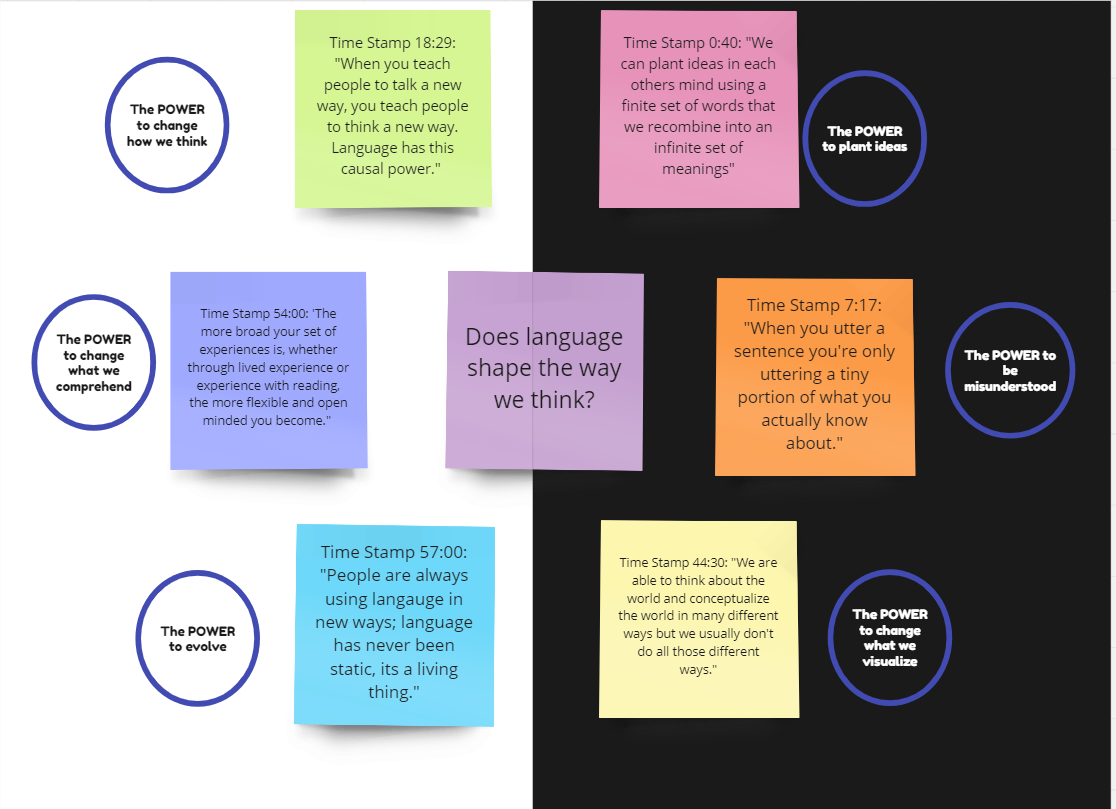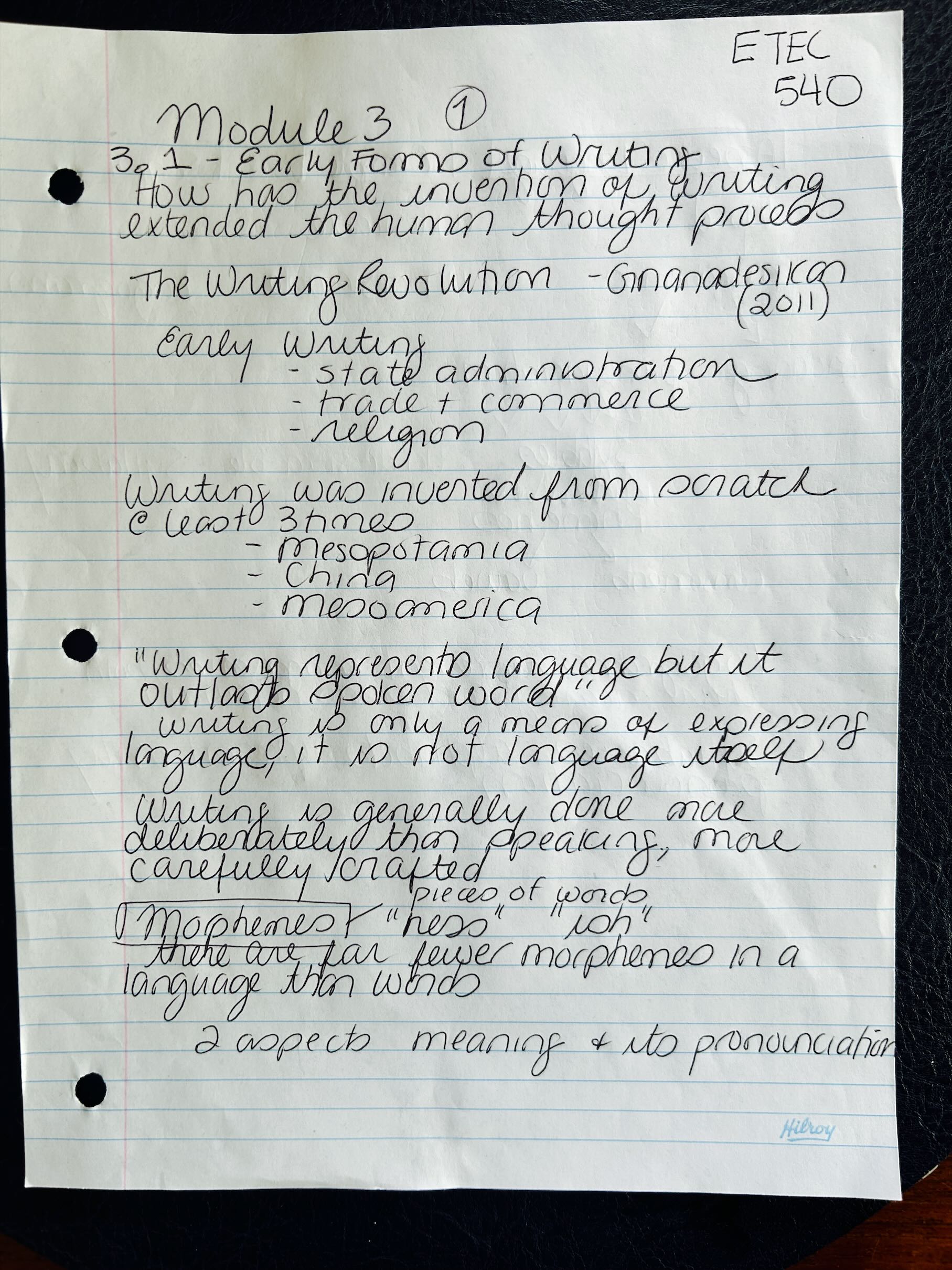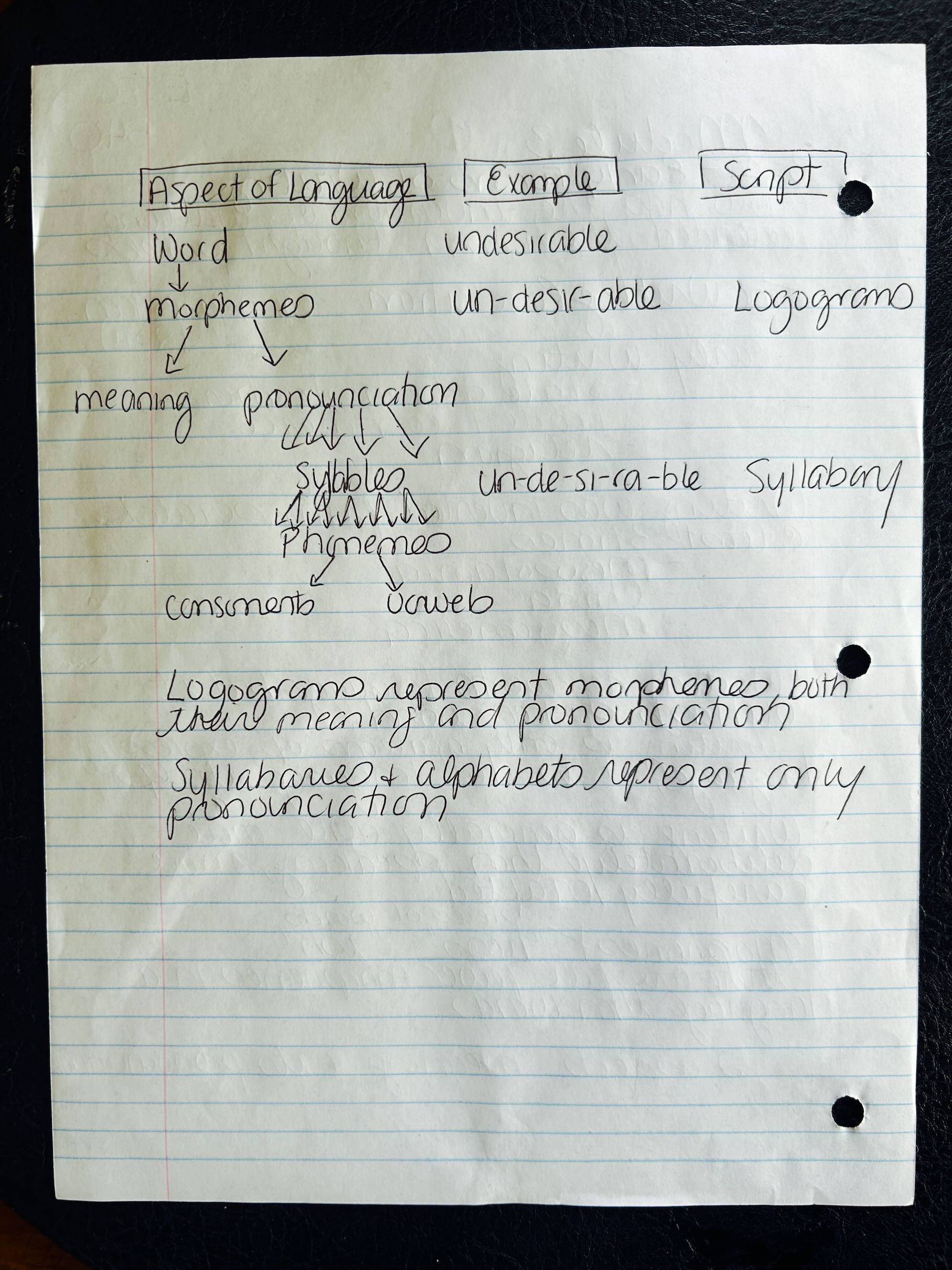
Dr Lera Boroditsky (2017) describes how languages and cultures shape our thinking. My second task in this course was to answer the following question: “Does language shape the way we think?” I was asked to identify six statements made by Dr. Boroditsky that stood out to me or that I could relate to on a personal level. I will speak to each of these statements individually, but what I found to be quite interesting was the common theme I observed across the six statements I chose. That theme is the power of language. When visualizing the mind map I created, I observed both negative and positive influences of language, as visualized with the black and white background.
0:40: “We can plant ideas in each other’s mind using a finite set of words that we recombine into an infinite set of meanings.” This statement made by Dr Boroditsky speaks to the power language has to plant ideas. When first hearing this, my mind went to a dark or negative space for some reason. I immediately thought of social media and internet algorithms. I reflected not only how the text we are exposed to daily shapes how we think but also how text and images are curated to potentially bias one to think in a particular way or create self-fulfilling prophecies.
7:17: “When you utter a sentence, you’re only uttering a tiny portion of what you actually know about.” Dr. Boroditsky spoke about what is assumed when a statement is made. Using the example, “It rained this morning”, she speaks about what is assumed in this sentence. It is implied that the person making this statement knows it rained outside and not inside, for example. This thought made me think about the power to be misunderstood through language. This concept spans across cultures, languages and even the form of communication. I would be curious to know how many people read and re-read emails like I do to ensure their communication comes across as friendly and inquisitive instead of direct and confrontational. To use my daughter as an example, her text communications are direct and with no punctuation. Me: “I love you! Have a great day!” Her: “K” “Bye”. Because I know her, I know that she loves me and wishes me a great day, too, but there is power for this communication to be misunderstood and interpreted as cold or impersonal.
44:30: “We are able to think about the world and conceptualize the world in many different ways, but we usually do those different ways.” Dr. Boroditksy discusses how we have the power to look at things differently and how we are prone to do things how we are used to doing them. This statement made me think about my journey in this master’s program so far. I have always approached school and learning with the intention of the grade. What do I need to do to get a good mark? How much an assignment is worth would determine the time and energy I put into it. I have had the opportunity to look at learning differently in this program which has been hard for me to do. By changing my language and asking the question, “What do I want to take away from this course?” I am changing how I visualize and approach this course. My language gives me the power to change what I am experiencing.
57:00: “People are always using language in new ways; language has never been static; it’s a living thing.” Visualizing language as a living thing highlights the power to evolve. As I navigate the world as a mother of a pre-teen, I frequently come across words that I haven’t heard. Sus, no cap, mid, the list goes on. This is one example, perhaps a more simplistic one, of how our language can change and evolve. New words have entered the stratosphere; however, I think it is equally important to note the language that is no longer commonplace. Words that were hurtful and cruel. I recently watched a movie from the late 80s with my children, an all-time fave, “Adventures in Babysitting.” As we watched, I could tell the movie had been altered to cut out a particular word. This was not an edit for TV, as the movie was streaming on Disney Plus. However, the original movie had been edited to remove this word completely. This was not a “swear word” but a word that exuded homophobia and was a word that sadly would have been considered acceptable in the 1980s. In that moment, I thought of the language that I was exposed to as a child and how that shaped my perception of the world, and I was grateful for how we have evolved with each generation.
54:00: The [broader] your set of experiences, whether through lived experience or experience with reading, the more flexible and open-minded you become.” This statement is more than just a sentence that stood out to me during Dr. Boroditsky’s talk; it is how I try to live my life. Working in healthcare, I work with individuals with varied lived experiences, and I have seen how trauma can impact an individual’s physical and psychological well-being. I have seen the assumptions that are made about an individual when they are unable to communicate in English: “confused,” “rude,” “aggressive,” and “agitated.” Teaching in the hospital, I encourage my students to think about their patients’ lived experiences and experiences beyond the hospital walls. I encourage the use of our translation program to ensure we are understanding our patient’s lived experience to the best of our ability. Stepping outside of our own lived experience and anticipating what someone else might be going through is one of the greatest skills a nurse can have. One of my favourite quotes: “Instead of asking why are you doing this to me? Ask, what happened to you?” Experience through language gives us the power to change what we comprehend.
18:29: “When you teach people to talk a new way, you teach people to think a new way. Language has this causal power.” This final statement left me reflecting on the power language has to change how we think. I have been a nurse for many years and have experienced an important change in how we describe and document our patients. Person-first language advocates argue that its use results in decreased stereotypes and objectification of patients based on their illness or disability (Grech, Koller, & Olley, 2023). For example, the once common term “drug user” is now replaced with “a person who uses drugs.” Changing our language about people provides us with the power to change how we think about people.
Grech LB, Koller D, Olley A. Furthering the person-first versus identity-first language debate. Australian Psychologist. 2023;58(4):223-232. doi:10.1080/00050067.2023.2192863



